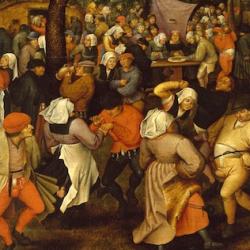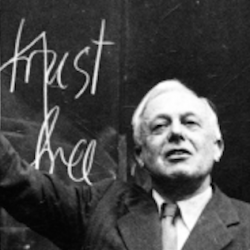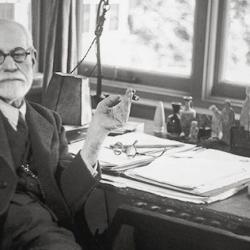Love has power to transform the world and lovers. “Love is the answer to the despair in which a reality is lost that knows nothing other than law, fate, and will” (74).
Rosenstock-Huessy makes this claim in his Sociology, but he’s not being gauzily sentimental. Love takes public form in marriage, and the wedding day is a triumph over law, fate and will.” How so?
“Every wedding breaks the prevailing law: it sanctions the change of a name. The freedom of the will is surrendered, for it is bound up by vows. Third: What fat rendered asunder, love unites. Every marriage creates a new race of which destiny knew nothing beforehand” (74).
A pair of lovers thus “confutes three states of affairs that prevail prior to the betrothal”:
“1. That all facts obey causal and law-like conditions, which is overturned by surprise.
2. That every human being takes his own will as a guide for his actions, which is refuted by sacrifice.
3. That all nature is known in attributes as a fixed store of knowledge, which is rebutted by the emergence of something new” (74).
By its surprise, its commitment to sacrifice, and its novelty, love takes a public form that overturns the apparently iron laws of reality.”
Rosenstock adds that love is the antidote to the “inbreeding” of german philosophy. Hegel stood for law, Fichte for will, Schelling for destiny. Rosenstock prefers Goethe, who “set the bridegroom in opposition to the three student pastors.”
It’s not an accident that “the bridegroom does not appear in philosophy.” To introduce him would be to overturn philosophy. But sociology must acknowledge the bridegroom, and the transforming power of love.












